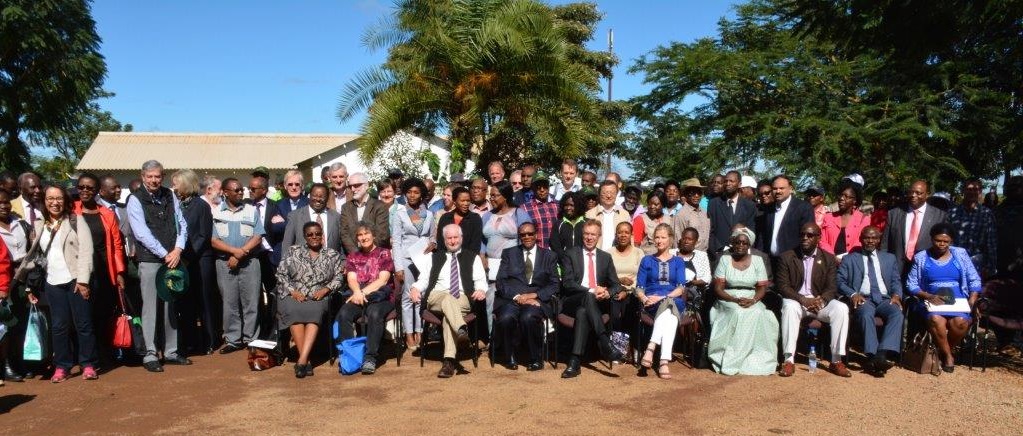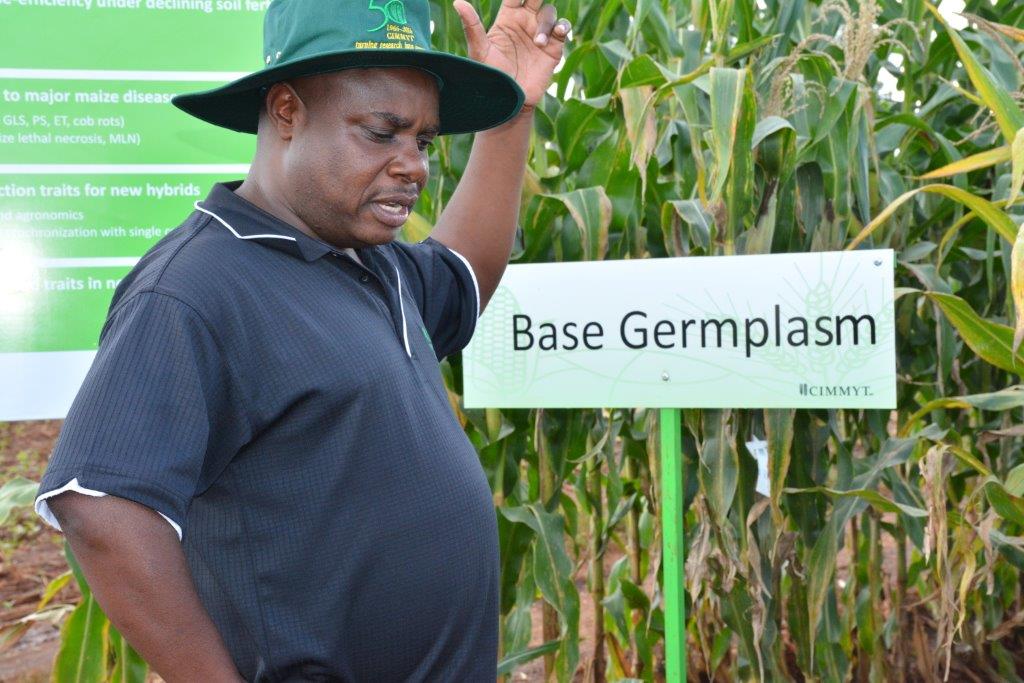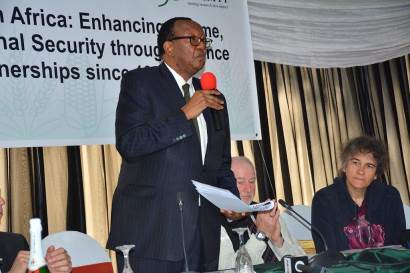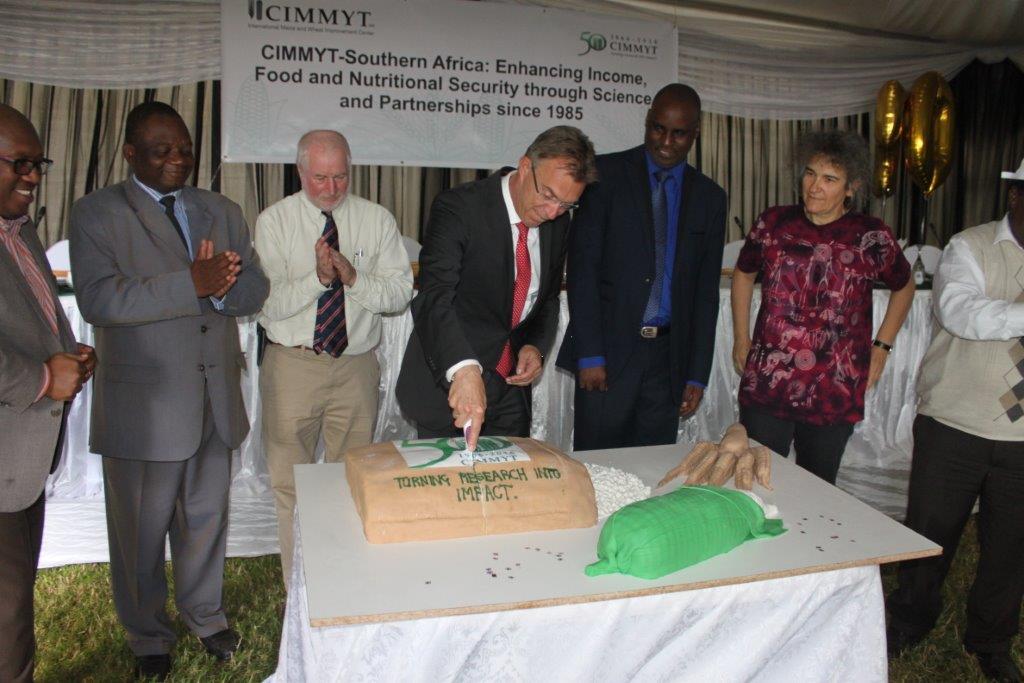
HARARE, Zimbabwe (CIMMYT) — Improved maize varieties, crop management practices and sustainable intensification characterize valuable contributions made by the International Maize and Wheat Improvement Center (CIMMYT) over the past 50 years, said a Zimbabwe government official at recent anniversary celebrations, calling for renewed investments in agricultural development in the country.

Under the theme ‘’turning research into impact,’’ the April 11 celebrations at the CIMMYT-Southern Africa Regional Office in Harare were attended by more than 300 people, including members of CIMMYT’s board of trustees, donors, representatives from non-governmental organizations, research institutions, national agricultural research systems from eastern and southern Africa, the diplomatic community, farmer associations and seed companies.
“I’d like to highlight the long-standing partnership between CIMMYT and its African partners and the efforts being made to sustainably increase the productivity of maize-based systems to ensure food and nutritional security, increase household incomes and reduce poverty in sub-Saharan Africa,” said Joseph Made, Zimbabwe’s Minister of Agriculture, Mechanisation and Irrigation Development, during a speech.
During the “CIMMYT 50” event, the world’s leading research center on maize and wheat showcased its work by conducting an on-station tour, a field trip to observe crop-livestock integration activities and a visit to the maize lethal necrosis quarantine facility being established in Zimbabwe.

Made acknowledged that CIMMYT’s research work has resulted in the development of hundreds of improved maize varieties and crop management practices and more recently, sustainable intensification options that are now spreading through the region.
However, Made also emphasized the need for continued investment “in view of the ever-growing population and the adverse effects of climate change and variability.”
“What is currently happening is that governments are preoccupied with short-term problems at the expense of long-term problems,” said Martin Kropff, CIMMYT’s director general, citing new challenges, such as climate change, that are shifting or shortening growing seasons, resulting in irregular rainfall and weather patterns.
“Such challenges can be overcome partly by giving farmers early warning, especially via mobile phone, of the coming season’s expected weather, and improved seed to withstand drought, heat, floods and short growing seasons,” Kropff said, adding that 40 percent of CIMMYT’s activities take place in Africa.

Extensive research activities take place in Harare, other substations and on-farm trials.
From 2007 to 2014, over 200 unique drought-tolerant and nutrient use-efficient maize varieties were released through more than 100 private sector companies in 14 African countries.
In 2014 alone, CIMMYT supported the production of nearly 52,000 tons of certified drought-tolerant maize seed, enough to plant over 2 million hectares (4.9 million acres) and touch the lives of people in approximately 5.2 million households.
CIMMYT continues to make an impact in Africa by building the capacity of national institutions, enterprises, researchers and farmers, and ensuring that gender and culture are integrated in every intervention.
The main “CIMMYT 50” celebratory commemorative event will be held in Mexico City from September 27 to 29 2016.
 Capacity development
Capacity development